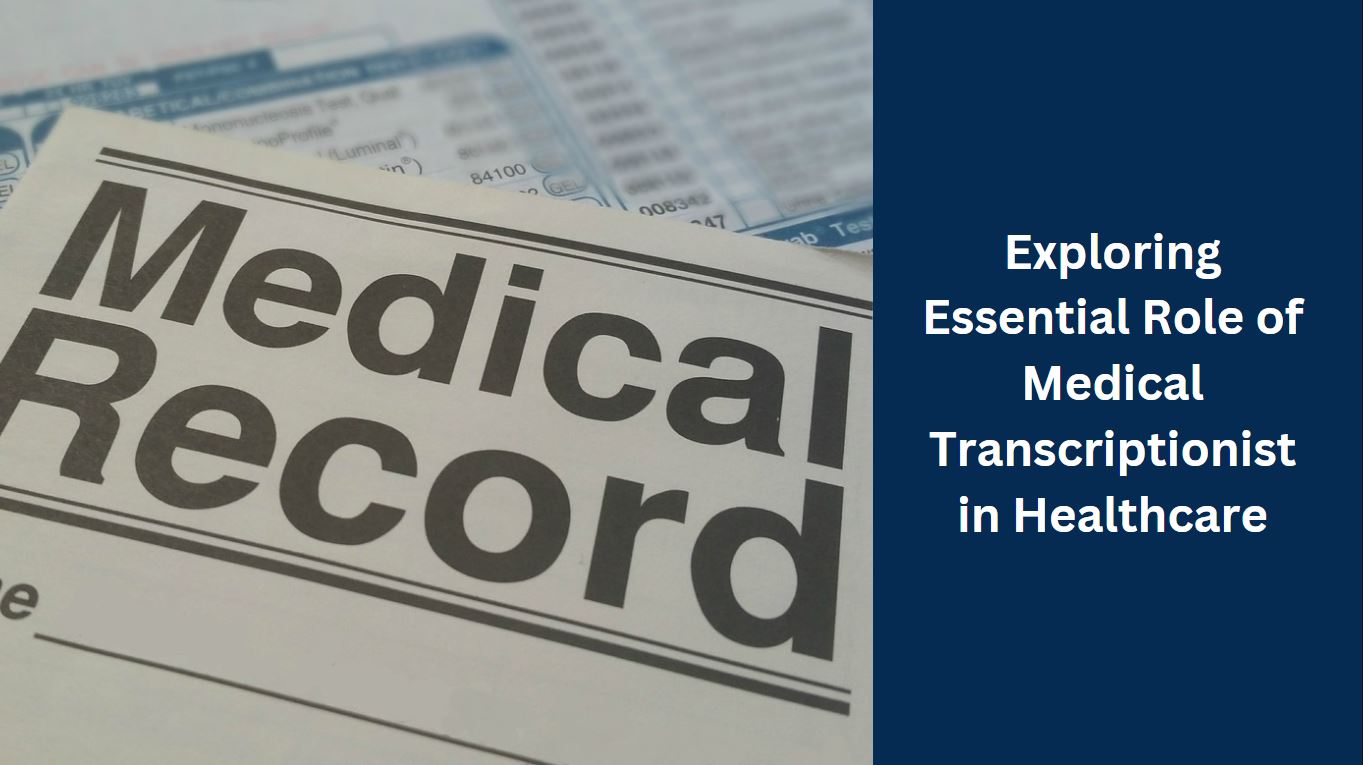- Likes
- Followers
- Followers
- Followers
- Subscribers
- Followers
- Members
- Followers
- Members
- Subscribers
- Subscribers
- Posts
- Comments
- Members
- Subscribe
Exploring Essential Role of Medical Transcriptionist in Healthcare

Medical Transcriptionist is the person who is transcribing voice-recorded medical reports that are narrated by healthcare experts into written text documents. It is an essential role in the health care industry which comes under medical transcription. For the purpose of patient care, treatment plans, and medical documentation, these transcriptions are crucial records. In this article, the complexities of medical transcription, its significance in the healthcare industry, and the competencies needed to succeed in this specialized sector will all be covered.
Understanding Medical Transcription
The accurate transcription of doctor, surgeon, and nurse instructions is the job of medical transcriptionists, who are highly qualified individuals. Following industry norms and rules, they carefully translate audio recordings of medical consultations, operations, and patient interactions into written reports.
Importance of Medical Transcription in Healthcare Documentation
Maintaining patient records, assuring continuity of treatment, and promoting communication among healthcare practitioners all depend on accurate and thorough medical recordkeeping. Clinical decision-making and patient management are aided by medical transcriptions, which offer a permanent record of patient diagnoses, treatments, prescriptions, and follow-up instructions.
Skills and Qualifications for Medical Transcriptionist
Posts You May Like
To succeed in their position, medical transcriptionists need to possess a certain set of abilities and credentials such as-
- Ability to accurately transcribe complex medical terms requires knowledge of anatomy, physiology, and medical terminology.
- Excellent typing abilities and attention to detail are necessary to guarantee accurate and flawless transcription of audio files.
- To effectively manage and process transcription duties, familiarity with dictation equipment and medical transcribing software is necessary.
- knowledge of confidentiality and privacy laws, such as the Health Insurance Portability and Accountability Act (HIPAA), to protect patient data.
Career Opportunities and Advancement in Medical Transcription
For qualified individuals, a variety of job options are available in medical transcription. Medical transcriptionists can submit their resumes in the job posting websites and also look in to the Government jobs sites. Now a days, Sarkari jobs also available for the medical transcriptionists in the government medical colleges and hospitals. These jobs can be like below-
- Internal Medical Transcriptionist works for hospitals, clinics, or other healthcare facilities, transcribing reports and medical records.
- Independent Health Transcriptionist work alone or for transcription service providers, handling several clients’ transcription needs.
- Medical Transcription Editor checks and edits written material for correctness, comprehensibility, and adherence to industry norms.
- Manager of Medical Transcription manages transcription teams, schedule tasks, and make sure that quality control and deadlines are met.
Conclusion
When it comes to providing accurate and thorough records of patient care and treatment, medical transcribing is essential to healthcare documentation. By effectively transcribing medical dictations and upholding strict quality and accuracy standards, proficient medical transcriptionists enhance the efficacy and efficiency of healthcare delivery. Medical transcription presents a potential career path with significant prospects for professional growth and promotion for anyone seeking a fulfilling career in healthcare administration and documentation.
Image designed at- Canva


Comments are closed.